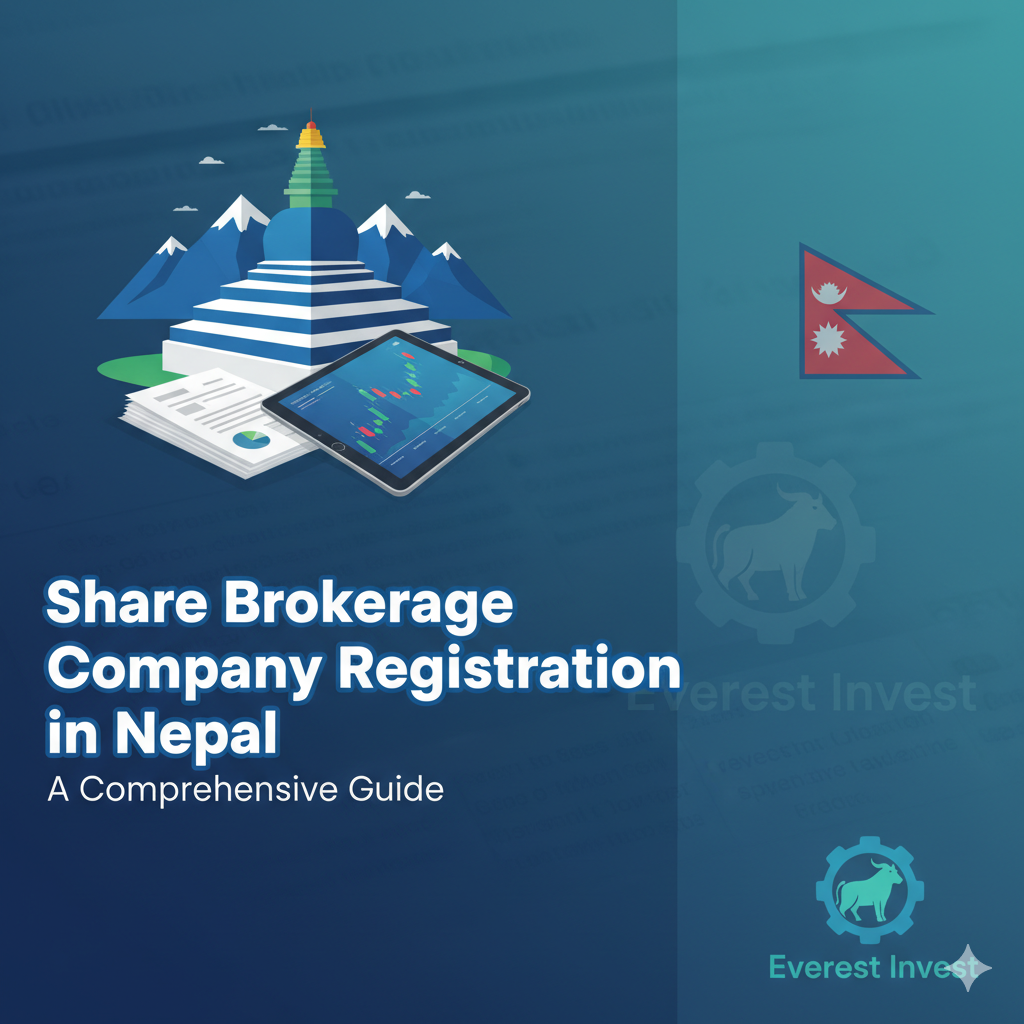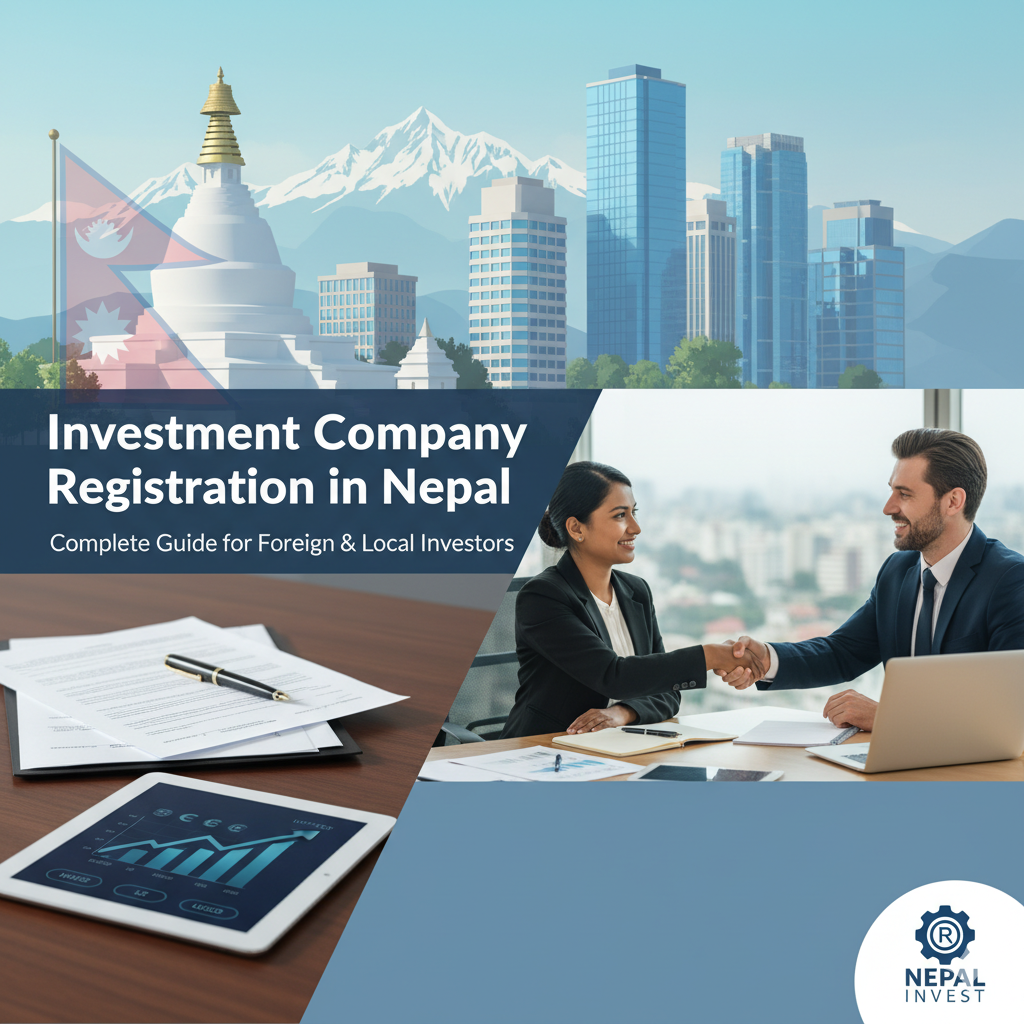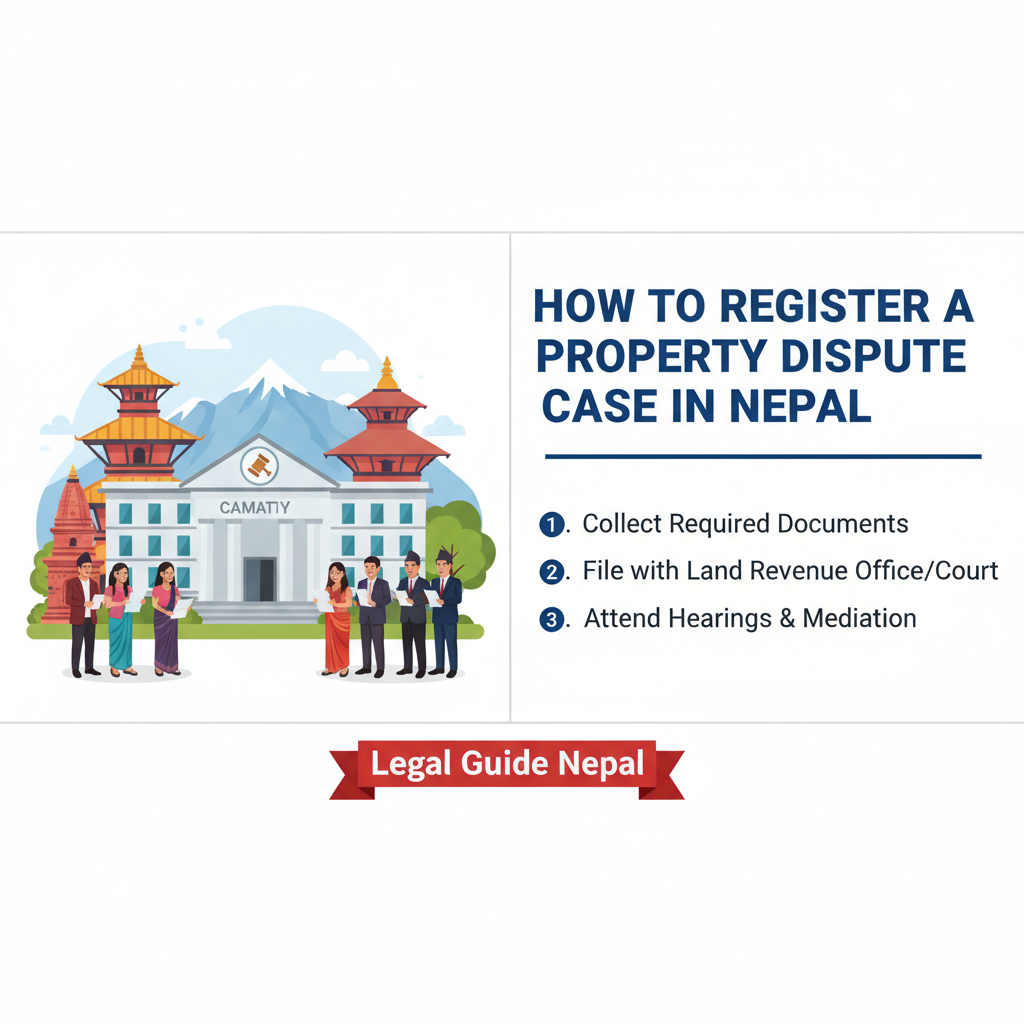
Introduction
The Nepalese capital market is experiencing a period of dynamic growth, fueled by increasing investor participation, regulatory reforms, and the digitalization of trading platforms. For aspiring entrepreneurs and established financial institutions, this presents a golden opportunity to enter the securities industry. However, the path to becoming a market intermediary is paved with specific regulatory requirements designed to ensure market integrity and investor protection. Navigating this landscape requires a clear understanding of the legal framework and a meticulous approach to compliance. This comprehensive guide will walk you through every essential aspect of Share Brokerage Company Registration in Nepal, from initial company incorporation to obtaining the crucial stockbroker license Nepal. Whether you are a local investor or a foreign entity looking to tap into this burgeoning market, this article will serve as your definitive resource for establishing a successful brokerage firm Nepal.
The Growing Opportunity: Why Establish a Brokerage Firm in Nepal?
Before diving into the procedural details, it’s important to understand the context. The Nepal Stock Exchange (NEPSE) has seen significant expansion in recent years. The government and the Securities Board of Nepal (SEBON) are actively working to deepen the capital market to support the nation’s economic development. This has created a robust demand for professional, reliable, and technologically adept brokerage services. By establishing a brokerage firm, you position yourself at the heart of Nepal’s financial ecosystem, facilitating capital formation and wealth creation for a new generation of investors.
Understanding the Regulatory Framework
The securities industry in Nepal is highly regulated to maintain transparency and protect the interests of the investing public. Any entity wishing to operate as a broker must adhere to the rules set by the primary regulatory bodies.
The Securities Board of Nepal (SEBON)
SEBON is the apex regulatory authority for the securities market in Nepal. Established under the Securities Act of 2006, its primary mandate is to regulate the securities market, protect investors, and promote the orderly development of the capital market. Obtaining a license from SEBON is the most critical step in the Share Brokerage Company Registration in Nepal process. The SEBON registration process is rigorous, ensuring only qualified and capable entities are permitted to operate.
Nepal Stock Exchange (NEPSE)
NEPSE is the sole stock exchange in Nepal. All trading of listed securities takes place on its platform. A stockbroker acts as a member of NEPSE, executing buy and sell orders on behalf of investors. To become a member of NEPSE, a firm must first be granted a license by SEBON. Therefore, the relationship is sequential: SEBON approval precedes NEPSE membership.
Key Legislations
The entire process is governed by a set of key legal instruments, including:
- The Securities Act, 2006: The foundational law for Nepal’s securities market.
- The Securities Registration and Issuance Regulation, 2008: Details the process for registering securities.
- The Stockbroker Regulation, 2008 (and subsequent amendments): This is the most crucial regulation for aspiring brokers, outlining all securities broker requirements Nepal, from capital to infrastructure.
- The Companies Act, 2006: Governs the initial incorporation of the brokerage company.
The Two-Pronged Path: Company Incorporation and SEBON Licensing
The journey to becoming a licensed stockbroker is a two-stage process. You must first establish a legally recognized company and then apply for the specific securities license.
Step 1: Company Incorporation in Nepal
Before you can even apply to SEBON, you must have a registered company. The preferred form of business for a brokerage firm is a Private Limited Company or a Public Limited Company.
- Name Reservation: Submit an application to the Office of the Company Registrar (OCR) to reserve your desired company name.
- Document Preparation: Draft the Memorandum of Association (MOA) and Articles of Association (AOA). The object clause in your MOA must explicitly include “securities brokerage” or a similar objective.
- Registration with OCR: Submit the required documents, including the MOA, AOA, details of promoters, and proof of registered office address to the OCR.
- Receiving Certificate of Incorporation: Upon successful verification, the OCR will issue a Certificate of Incorporation, legally birthing your company.
This step is standard for any business but is the foundational prerequisite for your SEBON registration application.
Step 2: Obtaining the Stockbroker License from SEBON
This is the core of the process where you must meet the stringent securities broker requirements Nepal. The application is submitted directly to SEBON.
Deep Dive: SEBON Stockbroker License Requirements
SEBON scrutinizes every application to ensure the applicant is “fit and proper” to hold a stockbroker license Nepal. The requirements are comprehensive and cover financial, infrastructural, and personnel aspects.
Eligibility Criteria
- Entity Type: The applicant must be a company incorporated in Nepal under the Companies Act, 2006.
- Promoters/Directors: The promoters and proposed directors of the company must be individuals of good character, sound mind, and with a clean financial and legal record. SEBON will conduct a thorough background check. They must not be involved in any fraud or default with any financial institution or regulatory body.
- Disqualifications: Certain individuals, such as undischarged bankrupts or those convicted of a criminal offense involving moral turpitude, are disqualified from being directors or key personnel.
Capital Requirements
This is a non-negotiable financial hurdle. As per the Stockbroker Regulation, a firm applying for a stockbroker license Nepal must maintain a minimum paid-up capital.
- Minimum Paid-up Capital: The current requirement is NPR 50,000,000 (Fifty Million Nepalese Rupees).
- Capital Verification: This capital must be deposited in a separate bank account, and a bank verification certificate must be submitted with the application. The capital must be free from any encumbrance.
Note: SEBON periodically revises capital requirements. It is crucial to check the latest directives from SEBON for the most current amount.
Infrastructure and Technical Requirements
SEBON mandates that a brokerage firm must have the necessary infrastructure to operate professionally and securely.
- Office Space: A minimum physical office size is often specified (e.g., at least 500 sq. ft.) in a commercially viable location.
- Trading Terminal: The firm must set up a dedicated trading terminal connected to the NEPSE trading system.
- Compliance Officer: The company must appoint a qualified and experienced Compliance Officer responsible for ensuring adherence to SEBON regulations.
- Qualified Personnel: The firm must employ at least two individuals who have passed the Stockbroker Licensing Examination conducted by SEBON.
- Software and Hardware: Adequate computer systems, backup power supply, and secure networking are essential.
Documentation Checklist for SEBON Application
Preparing a complete and accurate application package is vital for a smooth process. The typical documents required include:
- Application Form: The prescribed application form from SEBON.
- Company Documents: Certificate of Incorporation, MOA, AOA, and a copy of the company registration.
- Capital Proof: Bank certificate verifying the deposit of the minimum paid-up capital.
- Promoter/Director Details: Complete bio-data, citizenship copies, and photographs of all promoters and proposed directors.
- Financial Statements: Audited financial statements of the promoters and the company (if applicable).
- Tax Clearance: A copy of the company’s Permanent Account Number (PAN) and tax clearance certificate.
- Infrastructure Details: Proof of office ownership or lease agreement, and a layout plan.
- Personnel Details: CVs and academic/professional certificates of the proposed Compliance Officer and other key employees, including proof of passing the Stockbroker Licensing Exam.
- Banker’s Report: A report from the bank where the company’s account is held, vouching for the character and financial standing of the promoters.
- Undertaking: A legal undertaking to comply with all SEBON regulations and directives.
The Registration Journey: Timeline and Associated Costs
Estimated Timeline
The entire process is not instantaneous and requires patience.
- Company Incorporation: This can typically be completed within 2-4 weeks, provided all documents are in order.
- SEBON Application Processing: This is the more lengthy phase. After submission, SEBON will conduct a thorough review, which may include site visits and interviews. This process can take anywhere from 3 to 6 months, or even longer, depending on the completeness of the application and SEBON’s workload.
Cost Breakdown
The costs involved can be categorized into government fees and professional fees.
- Government Fees:
- Company Registration Fee (at OCR): Based on the authorized capital.
- SEBON Application Fee: A non-refundable fee specified in the Stockbroker Regulation.
- SEBON License Fee: A one-time fee payable upon approval of the license.
- Professional Fees:
- Legal Fees: For drafting documents, providing legal advice, and liaising with authorities.
- Consulting Fees: If you hire a specialized firm to manage the entire process.
- Audit and Certification Fees: For chartered accountants to verify capital and prepare financial statements.
The total cost can vary significantly, but a realistic budget should be prepared to cover all professional and statutory expenses.
Beyond Registration: Ongoing Compliance Obligations
Receiving the stockbroker license Nepal is not the end of the road. It is the beginning of a journey marked by strict ongoing compliance. Failure to adhere to these rules can result in hefty fines, suspension, or even cancellation of the license.
Reporting to SEBON
Brokerage firms are required to submit regular reports to SEBON, including:
- Quarterly and Annual Financial Statements.
- Audit Reports.
- Reports on client transactions and complaints.
- Any material changes in shareholding or directorship.
Maintaining Capital and Net Worth
The firm must always maintain the minimum paid-up capital and a minimum net worth as prescribed by SEBON from time to time.
Code of Conduct
All brokers and their employees must adhere to a strict Code of Conduct prescribed by SEBON, which covers fair dealing with clients, managing conflicts of interest, and maintaining market integrity.
License Renewal
The stockbroker license Nepal is typically not permanent and must be renewed periodically by paying the renewal fee and proving continued compliance with all regulations.
Conclusion: Your Partner in Navigating Nepal’s Capital Markets
Embarking on the journey of Share Brokerage Company Registration in Nepal is a challenging yet highly rewarding endeavor. The process is complex, demanding meticulous attention to detail, a deep understanding of the legal framework, and strategic planning. From meeting the stringent capital requirements for SEBON registration to setting up the necessary infrastructure and navigating the extensive documentation, the path to launching a successful brokerage firm Nepal requires expert guidance.
This guide provides a comprehensive roadmap, but the nuances of each application can be unique. A single error in documentation or a misunderstanding of a regulatory requirement can lead to significant delays and rejection.
This is where professional expertise becomes invaluable. Our team of legal and financial consultants specializes in Nepalese corporate and securities law. We have a proven track record of guiding clients through the entire Share Brokerage Company Registration in Nepal process, ensuring a smooth, efficient, and successful outcome.
Ready to take the next step? Contact us today for a personalized consultation and let us be your trusted partner in establishing your presence in Nepal’s exciting capital market.



